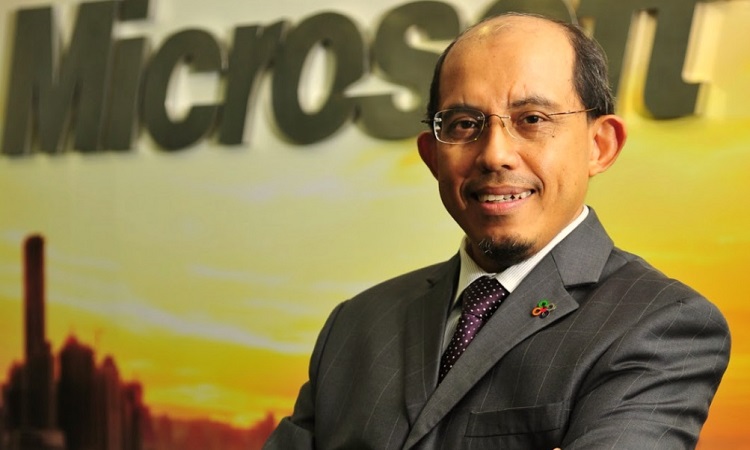The power behind the success of disruptive companies is agility, according to Microsoft Malaysia’s National Technology Officer, Dr. Dzahar Mansor.
“Data and AI (artificial intelligence) is accelerating the pace of the Fourth Industrial Revolution,” he said at an industry event held recently, adding that there are two major factors driving driving the disruptions we see today.
“The first is that the power has moved from companies to consumers. The second thing is that small things have got a big impact. Think about companies like Uber coming from nowhere. They’ve got $40bn market capitalisation in the last 5 years. Most of these companies like Netflix, Spotify, they came from nowhere to clearly disrupt traditional technical industries,” he told the audience.
He also noted that technology such as AI and IoT (internet-of-things), whereby phones and devices are now equipped with GPS and so on, has given rise to platforms that’s enabled such companies to exhibit their disruptive nature and affect everybody today.
“AI actually started out about 1948 – it’s not new! But it’s about the democratisation of technologies. This set of technologies today is affordable for small companies as well as large companies. In the old days, if you wanted to do AI, you had to have a huge company, 20 data scientists, huge amounts of high-performance computing to do it; today, I can do it at home.”
Dr. Dzahar emphasised that all these technology platforms are Internet-enabled. “Take your smartphone today, turn off LTE and Wi-Fi, and you have a first generation mobile phone used only to make and receive calls. Totally useless in our day and age.
“That’s why Klaus Schwab, the founder of the World Economic Forum, says that in this new world, it’s not about the big fish, it’s about the small fish. It’s about the fast fish eating the slow fish. And that again highlights the importance of agility. The small companies are really disrupting the big, well-established industries.”
For organisations to remain relevant, there is a need to constantly change and revamp.
“So if you are in the mature side of things, and most of our companies are, including Microsoft, obviously we need to focus on the stuff that we do best, improve productivity, and try to be really successful in the market.
“If you don’t start rethinking, you spend 90% of the time in solving today’s and yesterday’s problems, and only 10% of their time on tomorrow’s problems. In this era of game-changers, you have to spend less time on especially looking at yesterday’s problems. We have to have 70% of the time milking the cow, 20% of the time on dealing with tomorrow’s problems, you need to grow the business, and 10% of the time in the day after tomorrow, how to create that next ‘S’ curve.” Dr. Dzahar explained.
He believed that this required the type of organisation that allows advocacy; a willingness to try out “crazy ideas”, accept the possibility of failure, but in the event of success, understand how to commercialise the ideas in as short a timeframe as possible.
“The culture is different; if you think about the culture of a mature business, we’re thinking about efficiency and building expertise, but thinking about a startup culture, you’re probably looking at prioritising speed over efficiency, because you need to catch the market.”
There are several areas which can create such an organisation, Dr. Dzahar pointed out.
“You need to optimise the infrastructure not only from an efficiency standpoint, but also to provide you the flexibility to drive new business and new business models. Obviously you also need your employees; as your organisation moves away from purely a bureaucratic environment, you need to know how to leverage everyone’s capabilities.
“And as you move towards this startup mode, you need to be able to constantly engage your customers in a way that they want to be engaged. And finally, you need to be able to constantly transform your products to align yourself to the market needs.
“One of the challenges you’ll face as you say ‘let’s head towards this startup mentality’ is justifying it. But even in the short term, there are tangible benefits; from the productivity standpoint, profits, cost reduction, new products, and so on, there really are short-term gains that you can get. So if you’ve not embarked on it, you have to start.”
Dr. Dzahar is also Adjunct Professor at International Islamic University Malaysia and University Tun Hussein Onn Malaysia. He is also a Councillor at PIKOM (National ICT Association of Malaysia) and a Senior Management Associate at MIGHT (Malaysia Industry-Government Group for High Technology).





Indeed we are looking at the emergence of technology driven unprecedented productivity curves.